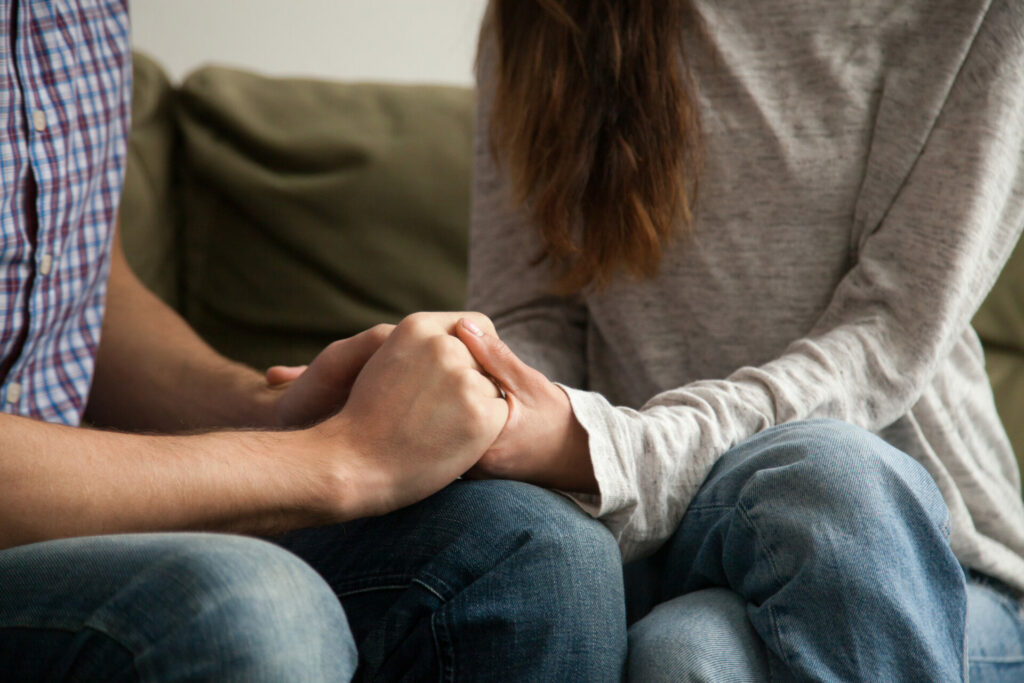If we were to trust movies and books, we might assume grief is something that happens immediately and ends in a timely manner. In reality, grief is far from predictable. For example, in some cases, it can take a while to take hold. Someone may be praised for “staying strong” when they’re actually not ready to process the loss yet. When it does hit, they may feel shocked and confused.
This is called “delayed grief.” There are many reasons why it happens but sometimes, it’s just how it goes. The human mind can work in mysterious ways and grief will certainly put that to the test.
But What About the “Stages”?
The infamous five stages of grief are usually misunderstood. Denial, anger, bargaining, depression, and acceptance are guidelines. They are presented as a way of preparing a person for a non-linear journey. In the case of delayed grief, it’s as if your body and mind have opted to postpone the entire process until the time feels right. So, don’t judge yourself if you’re not feeling and behaving according to the expectations of others.
What Causes Delayed Grief?
Let’s begin by reminding ourselves that grief is a normal reaction to loss. As mentioned above, your mind and body make not allow the full weight of this pain to strike until they have the bandwidth to handle it. A common factor in this scenario is simple busyness.
You have responsibilities, e.g. family, work, and more. When a loss happens, you may also have to help out with all the logistics. Consciously or unconsciously, you hold back the waves of emotions as you push through the blend of sorrow and everyday life.
When grief is delayed, it can eventually be triggered by a sudden reminder of the loss and/or the person who died. In a flash, you may feel as if the tragedy just happened as the floodgates open. This, of course, is challenging and uncomfortable — but it’s not weird or abnormal.
Delayed Grief Symptoms
- Intrusive thoughts about the loss and the person you lost (including nightmares and flashbacks)
- Anxiety
- Depression
- Sleep disturbances
- Angry outbursts
- Unexplained aches, pains, and bodily tension
- Loss of concentration
- Loneliness
- Fatigue
- Apathy
- Changes in appetite (eating more or less)
- Numbness
- Longing, sadness, and rumination
- Narrowly focusing on the loss or fastidiously avoiding reminders
- Unable to accept the death
How to Cope With Delayed Grief
Needless to say, each situation has its own unique factors. But there are some powerful, almost universal self-help steps everyone can take. For example:
Be Patient With Yourself
There is no blueprint. Don’t rush yourself. Practice self-compassion and let the process runs its course. If things get overwhelming, ask for help.
Practice Self-Care
Self-care helps build the resilience you’ll need to recover. Safeguard your sleep patterns, make healthy eating choices, be sure to exercise, and cultivate some forms of stress management.
Avoid Self-Medication and Unhealthy Habits
It’s tempting to indulge in substances that ease the pain. You may also feel unmotivated to cook for yourself, get to the gym, and so on. Lean on your self-care regimen and again, ask for help if you need it.
Keep a Journal
Monitor your triggers, emotions, and solutions. This journal will come in handy when talking to a therapist.
Create Meaningful Ways to Mark the Loss
You are free to create rituals that work for you. Find meaning in your grief as you keep your loved one’s memory alive.
Seek Out Social Support
Grief is not a solo act. Talk to friends and family. Join a support group. Do not isolate yourself.
If delayed grief has you feeling stuck and lost, I’d love to talk with you soon. Let’s connect soon so I can help you through grief counseling.




